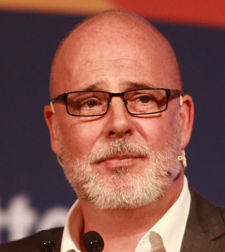 Managing Partner Festive Road Paul Tilstone
Managing Partner Festive Road Paul Tilstone
I can distinctly remember the first time I
came across the term “Social Capital”. It
was in 2022 whilst facilitating a day-long round-table on Purposeful
Travel, driven by Eric Bailey at Microsoft.
I can't remember, of the twenty or so travel execs attending the summit,
who first used the term, but I can recall the poignancy of the moment. Not only were we discussing what purposeful
travel meant for travel programs and the wider sector, but we were actually building
social capital right there and then, among all of the summit participants. The format of the day, the retreat’s remote
location, and the mobile signal-free environment were creating deepened
relationships at the same time as developing our thinking.
By all accounts, the concept of Social
Capital has been around for a while, as this Harvard
Review article from 2001 shows. It is essentially a term that describes
knowing and trusting people, a currency if you will, representing the depth of
relationships between those we seek to do business with. And as HBR says “The term nicely captures
the notion that investments in these relationships return real gains that show
up on the bottom line.”.
Like all forms of capital, Social Capital
needs effective management. It suffers
from depletion and requires continued attention and investment. With business travel booming in 2019, the
level of investment in our relationships was high, and the Social Capital we
had built was strong. As soon as the
pandemic hit and travel stopped, the investment we had made in our
relationships became invaluable as everyone leveraged relationships to keep their
businesses alive. But the Social Capital
we had built soon started to deplete, we could feel it in our virtual
interactions. As we re-entered the world of travel, our compulsion to meet was
unstoppable. We started to see not just why face-to-face was so important, but
that the type of interaction and shared experience had a considerable effect on
the level of Social Capital built, on the value of the trip taken.
So, Social Capital is a term that
perfectly represents why meeting in person, and therefore travel, is so
valuable and why we continue to struggle with the concept of ROI for
trips. It’s because physical interaction
and shared experience created through business travel and meetings may not actually
result in an immediate financial benefit, it's an investment for the future. Amex
GBT CEO, Paul Abbott, has talked regularly in the media about the important
role of travel in driving culture and the rise of travel from the gathering of
teams due to remote workforces. And he’s right, but these aren't easy forms of
travel to quantify the return in terms of immediate and direct, financial
ROI. It’s hard to justify a single trip
or team gathering in monetary terms each and every time.
But with the EU’s Corporate
Sustainability Reporting Directive coming into play this year the
focus on determining which travel types bring value to organizations will be
under the spotlight, as companies seek to slash travel emissions. And with that,
there’s a great opportunity for travel buyers to think more strategically about
the value of travel in their organizations rather than focus on the operational
delivery.
Smart companies will consider not just
which trip types should/shouldn’t happen to drive their business, they will try
to increase the impact of trips to amplify the purpose. Trying to help their
people manage their Social Capital levels to deliver on both short and
long-term objectives will be part of that equation. Knowing when to use virtual
vs in-person options, will become a competitive advantage. As will what format
that face-to-face interaction takes.
Ever since I first heard the term, the
concept of Social Capital has continued to enter my line of sight, in
ever-increasing frequency. It featured
heavily in a few of the GBTA Ladders pitches I was fortunate to hear last year,
where teams from our industry focused on the importance of leveraging travel to
deepen relationships and amplify the capital created. It has spawned several startups I have come
across which co-incidentally are focused on the same challenges the GBTA
Ladders teams faced. And it’s because of
this that I believe it defines the era in which we now operate and will gain
greater resonance in our sector in 2024.
We’ll start to see the term enter regular industry vernacular and start
to see companies define products and services that recognize and leverage the
principle of Social Capital.
If you think business travel has been
under the spotlight already, just wait to see what the next few years bring.
Defining the value of travel against the impact it has on people and the planet
will come to define us. Let’s face it,
it already is. The era of Purposeful Travel
brings with it an understanding of the importance of building and maintaining human
relationships, to help companies achieve their future objectives. Social Capital is what we are about. Relationships aren’t just valuable in our
sector, they are the very reason we exist, to deepen relationships in all the
sectors our industry serves.